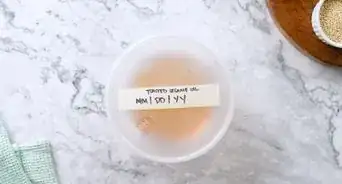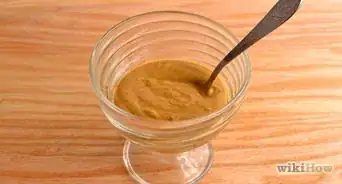This article was co-authored by wikiHow Staff. Our trained team of editors and researchers validate articles for accuracy and comprehensiveness. wikiHow's Content Management Team carefully monitors the work from our editorial staff to ensure that each article is backed by trusted research and meets our high quality standards.
This article has been viewed 35,718 times.
Learn more...
Apple cider vinegar is a very shelf stable ingredient, and it will keep indefinitely if stored properly. Mostly, it's best to keep it out of sunlight and away from heat. If you're worried about your vinegar, sniff it and give it a taste to see if it smells or tastes bad.
Steps
Maintaining Peak Condition
-
1Screw the cap on tight. Vinegar is a food that doesn't really go bad, per se. However, if you leave the cap open, bacteria and even bugs can get into it, so make sure you have the cap on tight before storage.[1]
-
2Keep the vinegar out of direct sunlight. Stick your vinegar somewhere the sun can't reach to help it retain its quality. Your pantry or cupboard is a good place to store it.
- If you prefer to store the vinegar on the counter, pour it into a sterile, dark glass bottle to protect it from sunlight.[2]
Advertisement -
3Pick a cool place to store your vinegar. Vinegar is sensitive to heat, so try not to store it near the stove or the warm side of the fridge. Pick a cooler area if possible, such as in the pantry, away from any heat source.[3]
- Basically, you want to store vinegar on the cool side of room temperature.
-
4Don't dilute the vinegar. The reason apple cider vinegar doesn't go bad is the acidity level keeps bad bacteria from growing. However, if you dilute it, you're decreasing the acidity level, and it won't be shelf stable. You can keep diluted apple cider vinegar in the refrigerator if you must dilute it.[4]
Monitoring Vinegar Quality
-
1Don't worry about cloudiness. Vinegar naturally gets cloudy over time. However, the cloudiness doesn't mean it's gone bad. The cloudiness just comes from a naturally occurring fiber in the vinegar. However, if you don't like the look of it, you can filter out the cloudiness and keep your vinegar in the fridge to prevent cloudiness in the future.
- To filter out cloudiness, run the vinegar through a piece of clean muslin or even just a coffee filter.
-
2Use the expiration date as a guide, not a rule. The expiration date on apple cider vinegar mainly tells you when the vinegar is getting past its peak quality. It can be safely used for many years afterwards, so you don't need to throw it away unless you've noticed a decrease in flavor.
- Some manufacturers just use a bottling date, and they suggest it's at its peak for another 5 years after this date.
-
3Notice changes in the vinegar's smell. It's rare for apple cider vinegar to go bad, but you may notice a change in the smell or taste. For instance, you may notice that it doesn't smell as acidic or vinegary. While it probably hasn't gone bad, it may not be at its peak.[5]
- If your vinegar smells bad, go ahead and toss it.
-
4Pay attention to changes in the vinegar's appearance. Watch for a change in color, as that could indicate a quality change. If you notice bulging sides or you hear gas escaping when you open the bottle, that's also a sign you should probably toss it. Some sediment is fine, as it's just the build of the fiber in vinegar. You can filter it out if you want. However, excessive amounts of sediment could indicate the vinegar is changing, and you should probably toss it.[6]
- If you're creating homemade vinegar, you should toss the batch if you notice mold on the top during the fermentation process.
-
5Note changes in the vinegar's taste. If the vinegar just doesn't taste as strong, it's likely still fine. If it tastes off or more acidic, it may be going bad, and you should get a new bottle.[7]
Community Q&A
-
QuestionIs it OK to keep apple cider vinegar in the refrigerator?
 Community AnswerYou can, but the flavor and the quality of the vinegar is preserved when kept in a cool, dry, dark place.
Community AnswerYou can, but the flavor and the quality of the vinegar is preserved when kept in a cool, dry, dark place. -
QuestionI read that cider vinegar should be stored in glass bottles?
 Otterly BadgerificTop AnswererGlass bottles are a good option because they won't react with the liquid inside. It is also best to choose darkened glass, as this prevents the light from spoiling the stored vinegar through oxidation. Keep in a cool, dry place.
Otterly BadgerificTop AnswererGlass bottles are a good option because they won't react with the liquid inside. It is also best to choose darkened glass, as this prevents the light from spoiling the stored vinegar through oxidation. Keep in a cool, dry place.
References
- ↑ http://www.stilltasty.com/fooditems/index/18643
- ↑ https://organicdailypost.com/apple-cider-vinegar-go-bad/
- ↑ http://www.stilltasty.com/fooditems/index/18643
- ↑ https://organicdailypost.com/apple-cider-vinegar-go-bad/
- ↑ https://organicdailypost.com/apple-cider-vinegar-go-bad/
- ↑ https://organicdailypost.com/apple-cider-vinegar-go-bad/
- ↑ https://organicdailypost.com/apple-cider-vinegar-go-bad/
About This Article
Before storing apple cider vinegar, screw the cap on tight to prevent bugs and contaminants from getting inside. Then, place the vinegar in your pantry, cupboard, or somewhere else that’s out of direct sunlight in order to preserve its quality and flavor. If you prefer to keep vinegar on the counter, store it in a sterile, dark glass container to protect it from the sunlight. Additionally, choose an area away from heat sources, like the stove or the warm side of the refrigerator, since heat can also degrade the vinegar’s quality. For more tips, including how to tell if your apple vinegar has gone bad, keep reading!
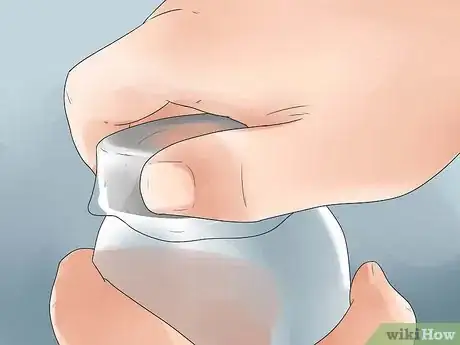


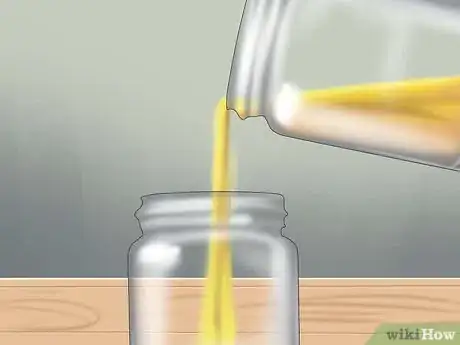
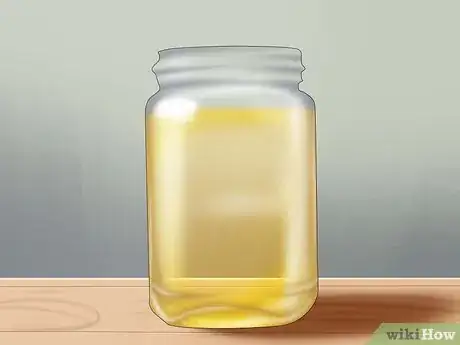

-Step-12-Version-5.webp)




